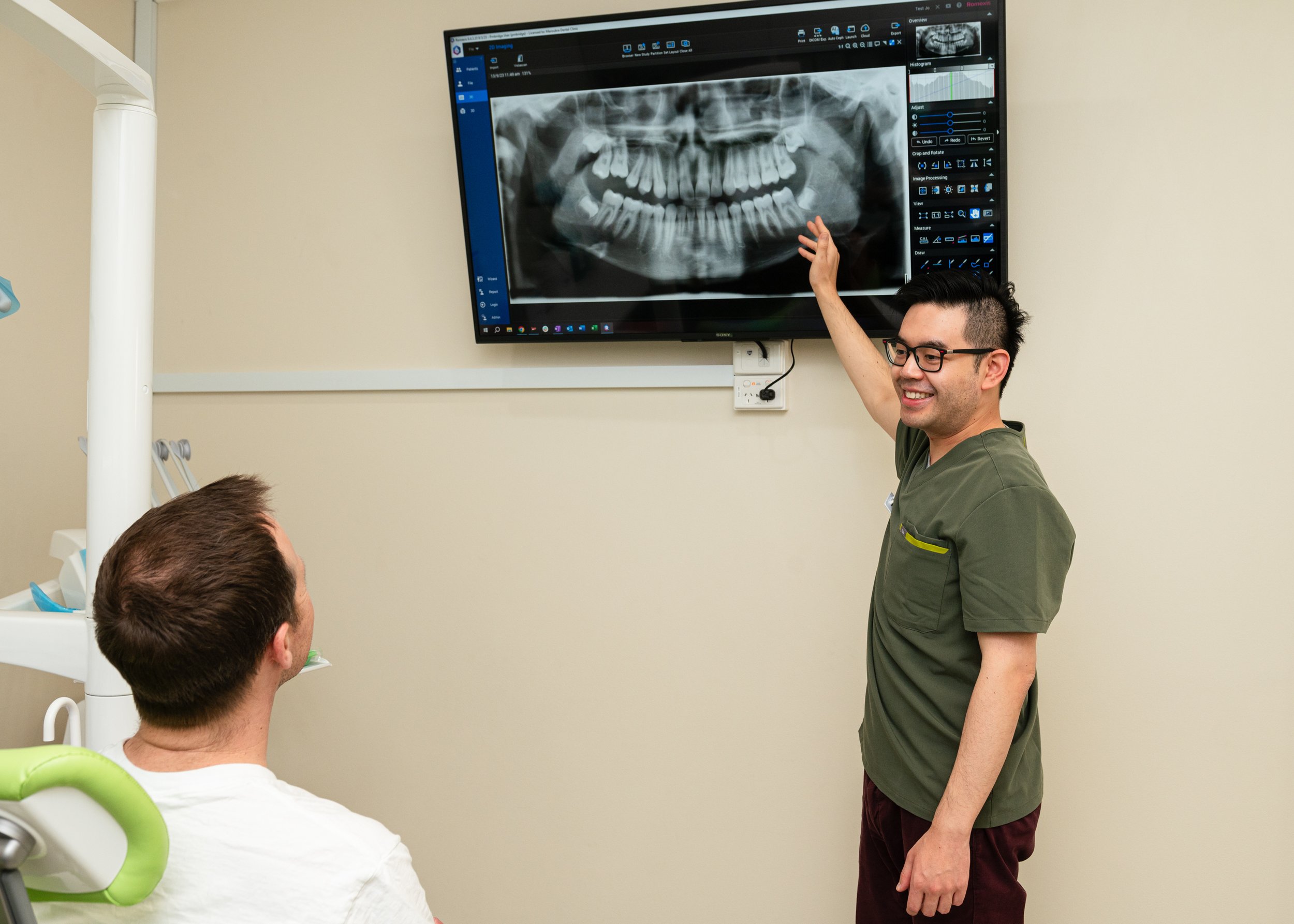Gum disease
Prevention is the best medicine ⚕️
What is gum disease?
Gum disease, also known as periodontitis, is a condition that damages the tissues supporting teeth. It causes gradual bone loss around teeth and can make it become loose or fall out if not treated.
The main reason for periodontitis is too much plaque/bacteria on teeth, which forces the gums to pull back. It's like your body's defense system losing a fight against bacteria and retreating from a losing battle.
What's the difference between gum disease and gum inflammation?
Gum disease (periodontitis) -> you gradually lose bone around your teeth, making it become loose.
Gum inflammation (gingivitis) -> No loss of bone around your teeth
They show similar signs and symptoms such as:
Swollen gums
Bright red or purple gums
Gums that are tender or painful to the touch
Bleeding gums or bleeding after brushing and/or flossing
Bad breath (halitosis)
How do I know if I have gum disease or gum inflammation?
To find out, your dentist needs to check using a special ruler to measure your gums. Most gum issues show no symptoms until they are in an advanced stage.
The good news is that it is entirely preventable. We do this by measuring your gum every 6 months for your regular checkup and cleaning (part of scaling and cleaning).
How do you treat gum disease?
To fully treat gum disease:
Get professional cleaning (deep cleaning)
Maintain good oral hygiene at home.
Get regular preventive cleanings and check ups.
Professional cleaning involves at least two visits with numbing of gums for thorough cleaning. With a follow-up in 2 weeks to check progress. Then, regular 3-6 monthly cleanings without numbing to prevent gum disease recurrence.
How can I prevent it?
Good oral hygiene and regular visits to the dentist
If you’re able to control the bacteria in your mouth you’ll control the amount of disease that you get. Regular twice a day brushing, flossing and some use of mouthwash helps.
6 monthly check-up with a dentist. We are able to spot things early and treat it early if it happens.











